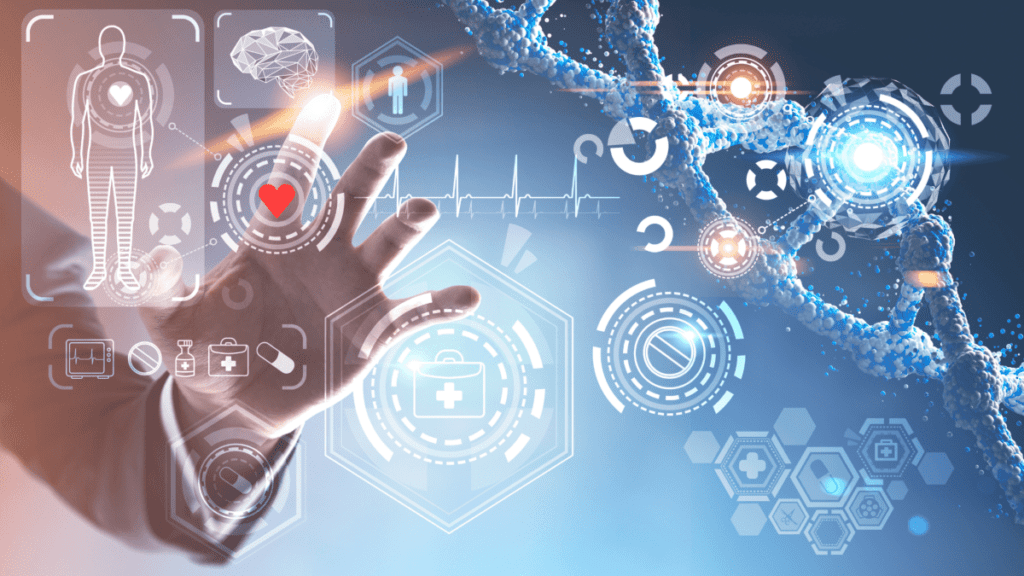Epigenetics is the fascinating study of how genes can be switched on or off and how those changes influence traits and behaviors without modifying the underlying DNA sequence. This field examines how environmental factors, diet, and more can impact gene expression. It also delves into how these changes can be passed down through generations.
How Epigenetic Changes Occur
Epigenetic changes occur through the addition or removal of chemical modifications, such as methyl groups, to the DNA molecule or histone proteins. One can picture these modifications as tiny “tags” that can affect how easily a gene is accessed and used to produce proteins. This, in turn, can shape an organism’s traits and behaviors.
The exciting aspect of epigenetics is that these changes are not set in stone. Modifications created through environmental or other factors can be reversed. This flexibility allows organisms to adapt and respond to their surroundings.
Inherited Epigenetic Changes and Health
At the same time, epigenetic changes can also be stable, meaning they can be passed down from one generation to the next. When cells divide and replicate their DNA, they maintain these epigenetic modifications, providing a potential mechanism for inherited traits.
The implications of epigenetics are vast, extending to various diseases and conditions that affect us. Scientists have discovered links between epigenetic modifications and conditions such as cancer, cardiovascular disease, diabetes, and mental health disorders. By understanding the epigenetic mechanisms underlying these conditions, researchers hope to develop new treatments and interventions.
Take cancer, for example. Epigenetic changes can alter the expression of genes involved in cell growth and division, potentially leading to uncontrolled cell growth and tumor formation. By studying these modifications, scientists are uncovering new avenues for targeted therapies and personalized medicine.
Cardiovascular disease, another major health concern, is also influenced by epigenetic factors. Epigenetic changes can affect genes responsible for regulating blood pressure, cholesterol levels, and inflammation. Understanding these modifications may lead to strategies for early detection, prevention, and tailored interventions.
The connection between epigenetics and diabetes is equally intriguing. Epigenetic changes can impact genes involved in insulin regulation and glucose metabolism, contributing to the development of type 2 diabetes. Unraveling these mechanisms holds the promise of improving diabetes management and prevention strategies.
Mental health disorders, too, have been linked to epigenetic modifications. Stress, trauma, and other environmental factors can leave a lasting epigenetic imprint on genes associated with mood regulation, anxiety, and resilience. Exploring these changes may pave the way for targeted therapies and interventions to support mental well-being.
Evolution of the Field of Epigenetics
Epigenetics is a rapidly evolving field, and researchers are continually uncovering new insights. Advanced technologies like next-generation sequencing and high-throughput screening are enabling scientists to study epigenetic modifications on a broader scale and with greater precision.
The study of epigenetics requires interdisciplinary collaboration, bringing together experts from genetics, molecular biology, biochemistry, and more. These dedicated researchers work tirelessly to decode the intricate mechanisms of gene regulation and their impact on human health and disease.
In summary, epigenetics offers a captivating glimpse into the complex interplay between genes and the environment. It highlights the reversible nature of gene expression and the potential for stable epigenetic changes to be inherited across generations. With its connections to various diseases and conditions, epigenetics holds tremendous promise for advancing our understanding of human health and developing innovative therapeutic approaches. As researchers continue to unveil the mysteries of epigenetics, the future of personalized medicine and targeted interventions shines ever brighter.
To learn more about epigenetics, visit the National Institute of Environmental Health Sciences or visit our Epigenetics Topics page.


